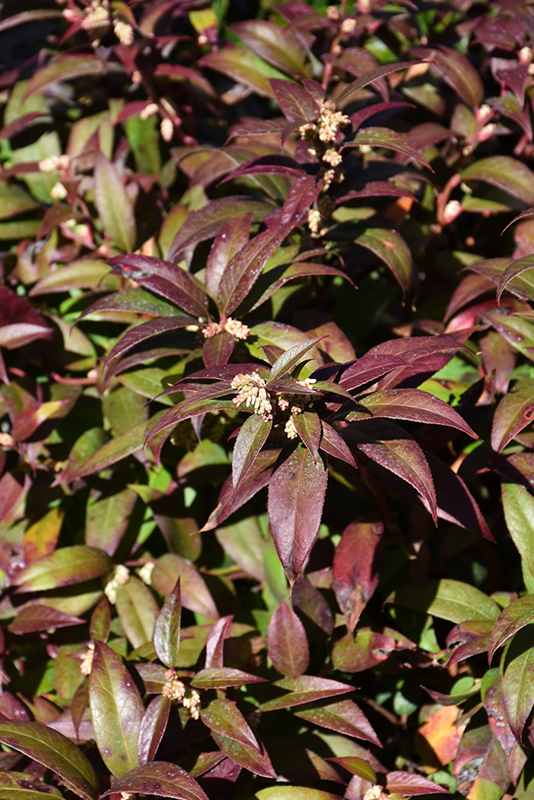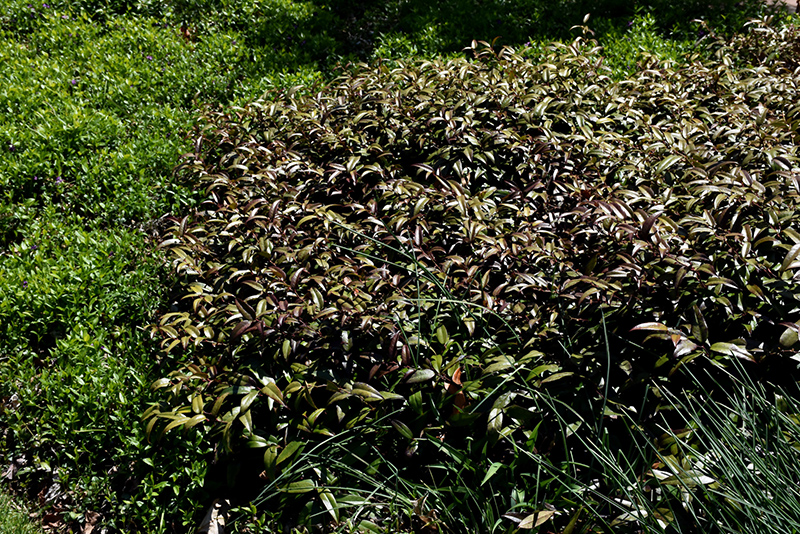>> Home
Scarletta Fetterbush
Leucothoe fontanesiana 'Zeblid'
Height: 24 inches
Spread: 4 feet
Sunlight:
![]()
![]()
Hardiness Zone: 4
Other Names: Mountain Doghobble, Dog Hobble
Description:
Scarlet-purple new leaves emerge above deep green foliage in spring; this lovely colonizing shrub blooms prolificly with long racemes of white bell flowers; foliage turns reddish-bronze in fall; a compact grower that makes a superb groundcover
Ornamental Features
Scarletta Fetterbush features showy racemes of fragrant white bell-shaped flowers hanging below the branches from late spring to early summer. It has attractive dark green evergreen foliage which emerges burgundy in spring. The glossy pointy leaves are highly ornamental and turn coppery-bronze in the fall, which persists throughout the winter. The red stems can be quite attractive.
Landscape Attributes
Scarletta Fetterbush is a multi-stemmed evergreen shrub with an upright spreading habit of growth. Its average texture blends into the landscape, but can be balanced by one or two finer or coarser trees or shrubs for an effective composition.
This is a high maintenance shrub that will require regular care and upkeep, and is best pruned in late winter once the threat of extreme cold has passed. Gardeners should be aware of the following characteristic(s) that may warrant special consideration;
- Suckering
Scarletta Fetterbush is recommended for the following landscape applications;
- General Garden Use
- Groundcover
- Naturalizing And Woodland Gardens
Planting & Growing
Scarletta Fetterbush will grow to be about 24 inches tall at maturity, with a spread of 4 feet. It has a low canopy. It grows at a medium rate, and under ideal conditions can be expected to live for 40 years or more.
This shrub does best in partial shade to full shade. Keep it well away from hot, dry locations that receive direct afternoon sun or which get reflected sunlight, such as against the south side of a white wall. It does best in average to evenly moist conditions, but will not tolerate standing water. It may require supplemental watering during periods of drought or extended heat. It is not particular as to soil type, but has a definite preference for acidic soils. It is somewhat tolerant of urban pollution. This is a selection of a native North American species.

